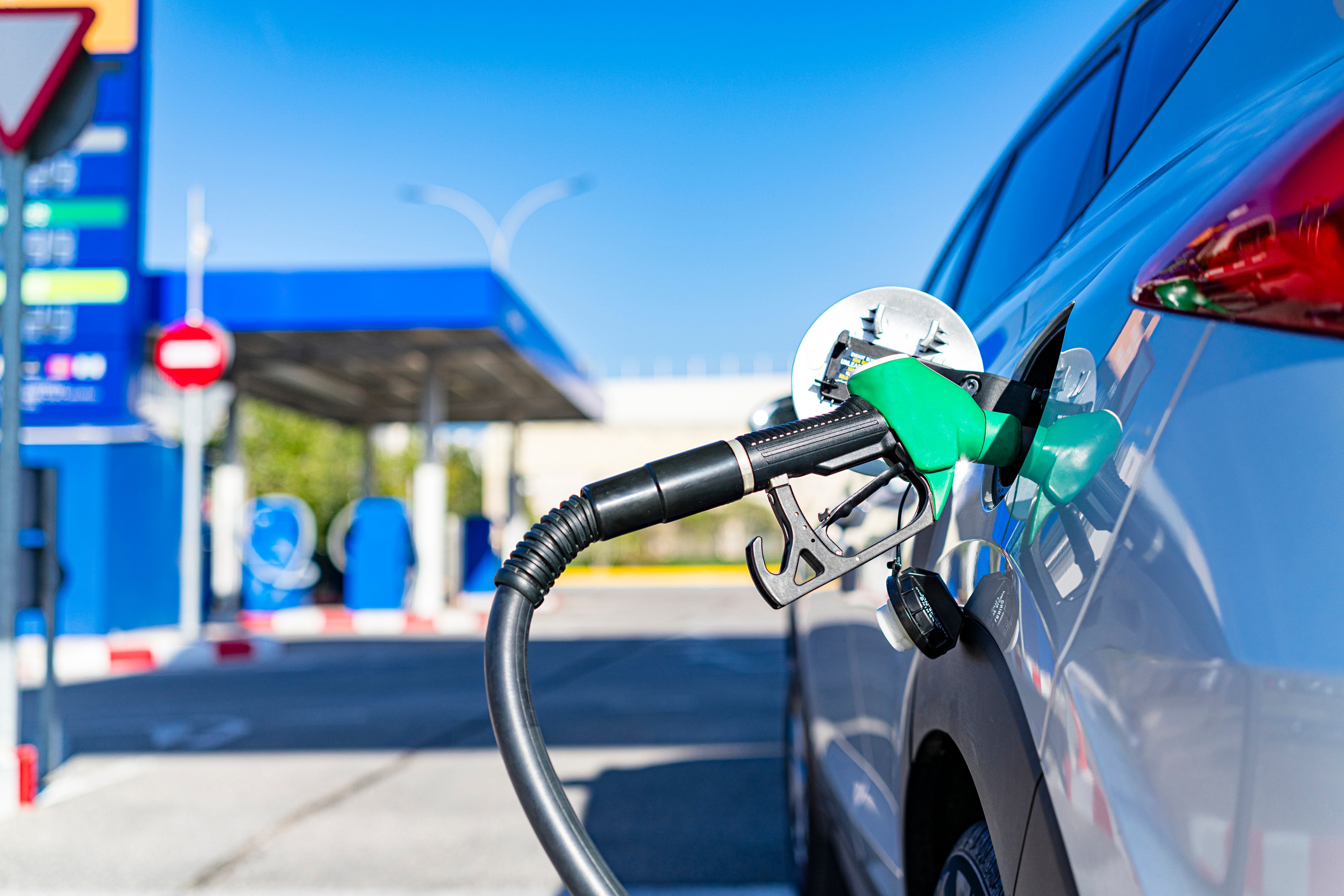Why I, as a Lamborghini lover, say: put petrol prices up
Don’t listen to the RAC’s call for a 5p a litre cut at the pumps, urges petrolhead Sean O’Grady – cheap petrol is only fuelling the problem


As someone who is proudly pro-car (see reviews and articles passim), I find the constant calls by the motoring lobby for cuts to the price of petrol bewildering.
Even those of us who’ve driven and loved Lamborghinis, Maseratis (and Skodas) don’t believe we have a divine right to cheap fuel, nor fancy that we can live a lifestyle as we have in the past. Our planet and our public services are far more important than that. There is no case for cutting or freezing fuel duty – yet again – in the upcoming autumn statement, and I have to say I’m also sceptical about the rumours about “pro-car measures” in the King’s Speech.
As for the RAC Foundation’s call for an immediate 5p cut in the price of a litre of fuel by the retailers, it just seems like an especially potent blend of special pleading, scapegoating and economic nonsense. Rather predictably, the energy secretary, Claire Coutinho has jumped into the passenger seat of the RAC’s latest sprint for publicity and is bullying the supermarkets into reducing their profit margins.
That isn’t really what should be happening in a free and competitive market, which it is. I never thought the Conservative Party would advocate turning fuel retailing into a not-for-profit sector, but it seems that’s the way things are now. It’s messier than a diesel spill.
Let us be clear about what’s going on under the bonnet of this crucial engine of our economy. First, the market is competitive, demonstrably, and the Competition and Markets Authority has confirmed it is so. The supermarkets, who’ve often offered cheap petrol and diesel to lure shoppers into their sites, are rebuilding their profit margins, but that is something that they have a perfect right to try and do.
Flogging fuel is not a branch of the social services, and a retailer trying to make a turn is hardly a crime. Generally, profits are good, and losses are bad for business and for a healthy economy – and they find the investment that’s also so badly needed. The age of “cakeism” has left behind a terrible legacy of economic illiteracy.
The price of petrol, like much else, goes up and down with market forces. When petrol was headed for £2 per litre a while back it wasn’t because of a sudden outbreak of greed at the Shell and BP stations, or some fresh collusion by Tesco, Sainsbury's and Morrisons; it was because of disruption to supplies after Russia invaded Ukraine, fairly obviously.
Second, we have a huge budget deficit, and the stresses being exerted on our public services are readily apparent. One of the best ways of getting our public finances onto something like a sustainable footing is to take the burden of tax off workers and enterprise, and transfer it to taxes on harmful or wasteful consumption – such as burning fossil fuels.
It is astonishing, and unjustifiable that fuel duty has been frozen since 2011, when every other tax and public sector charge has gone up. This is absurd. What is so special about petrol? Why does everyone feel that the government needs to keep the price of this particular commodity stable, when food and rent have been left to spiral? It ain’t rational. We need to get people switching to electric, and giving them every incentive to do so; or at least cut down on car usage, get smaller cars and drive them more gently so as to burn less fuel.
Third, and unfashionable as it’s becoming among the real luxury elite who govern us, we have to do something about the planet. Increasing the price of fossil fuels is a very straightforward way of reordering economic incentives towards green energy and electric cars, and will reduce our reliance on fossil fuels.
There is an alternative to petrol and diesel, and it is becoming more accessible and practical – the battery electric vehicle (BEV). It is undeniable that new models are relatively expensive, as new cars tend to be nowadays because we demand the manufacturers to make them faster, safer and more efficient than ever, but the differential, the price premium, between new BEVs and ICE (internal combustion engine) vehicles is declining, and may even have disappeared.
That trend will eventually make its way into the used market, but it will only do so if we accelerate the transition to electric passenger cars and vans, rather than putting it off, as Rishi Sunak prefers. By the way, in a world of zero-emission electric cars there is, by definition, no need for any ultra-low-emission zone and the fines that go with them.
Electric cars are as safe as their ICE counterparts, are more refined, and far cheaper to run and service. Best of all they go fast – the inherent torque advantages of an electric motor delivering supercar performance in modest hatches and baby SUVs.
For example, a new all-electric Smart #1 Brabus, a blobby little SUV, will propel you from a standing start to 60 mph in a Ferrari-like 3.9 seconds. In other words, even petrolheads can have fun in electric cars, and we can now leave the internal combustion engine behind, complete with some very happy memories. The age of cheap mass motoring need not be over – but it will be if we don’t make the switch from cars relying on a finite and increasingly expensive method of powering them.






Join our commenting forum
Join thought-provoking conversations, follow other Independent readers and see their replies
Comments